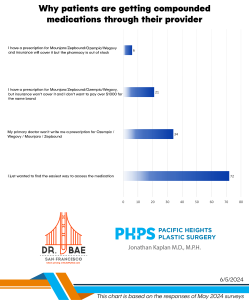 Does your heart doctor or kidney doctor have appropriate board certification? This probably isn’t much of an issue. Reason being that you were referred to that doctor by your primary care doctor or the emergency room. And for those doctors to be included within your insurance network or have permission (privileges) to work within that health system, they must be vetted first. That vetting is conducted by the medical staff office at the hospital, or the insurance company, to ensure that doctor is board-certified within the field they’re practicing.
Does your heart doctor or kidney doctor have appropriate board certification? This probably isn’t much of an issue. Reason being that you were referred to that doctor by your primary care doctor or the emergency room. And for those doctors to be included within your insurance network or have permission (privileges) to work within that health system, they must be vetted first. That vetting is conducted by the medical staff office at the hospital, or the insurance company, to ensure that doctor is board-certified within the field they’re practicing.
Who has board certification?
The confusion on whether your doctor is board certified occurs when you’re going outside of the traditional health system. By that I mean outside of the hospital vetting process or outside of the insurance system altogether. The culmination of factors resulting in that situation aren’t all that uncommon. It occurs every time you seek out a cosmetic procedure. All cosmetic procedures are cash-pay and therefore not covered by insurance. Additionally, the doctors offering cosmetic services don’t typically work within a hospital system. Usually they perform all of their services in their office or office-based operating room.
Therefore, those doctors are not under the scrutiny of the hospital or the insurance company. Hence, the risk of being bamboozled by a doctor not board certified by a recognized board in the specialty for which they’re treating you. Determining if your cosmetic doctor has the appropriate credentials can be confusing, and those doctors are doing it deliberately.
Questions to ask your doctor in addition to board certification
While I believe these doctors are real doctors, the credentialing they undergo after medical school is confusing. They may present themselves as board certified but are they board certified in the services they’re offering? And is the board in which they’re certified a recognized board by the American Board of Medical Specialities (ABMS)? While there are newer specialities treating patients in newer ways that are not recognized by the ABMS, I’m not referring to those doctors. i.e. functional medicine, anti-aging medicine etc. The ABMS is still catching up with newer fields.
The distinction I’m making is that doctors attempting to promote themselves with an alternative board certification are doing so to circumvent existing board certification. They’re doing this simply because they did not complete a rigorous, multi-year training process, so existing boards will not accept them. This is disingenuous on the doctor’s part. If an alternative route is equivalent or more rigorous, then more power to that alternative track. But it seems these alternative routes are comparable to alternative facts.
Hospital Privileges
Another great question for your doctor: if you have a surgical complication that requires admission to a hospital, do they have privileges at that hospital to continue treating you? If the doctor that performed your breast augmentation is a general practitioner and not a plastic surgeon, they won’t be allowed to treat your complication when admitted to the hospital. That sets up a strange dynamic wherein your doctor can no longer be your doctor because the hospital doesn’t recognize their certification.
Once that happens, you start to wonder, “why wasn’t I aware of those details before surgery?” Shockingly, there are no laws against a doctor treating someone outside of their board certification. So while they broke no laws, maybe they broke a moral code when they weren’t forthcoming about their board certification.
Check out this video to learn how to vet your doctors online! And to check Dr. Kaplan’s board certification and pricing, click here.
Click here for the original blog post written by Dr. Jonathan Kaplan for BuildMyBod.




